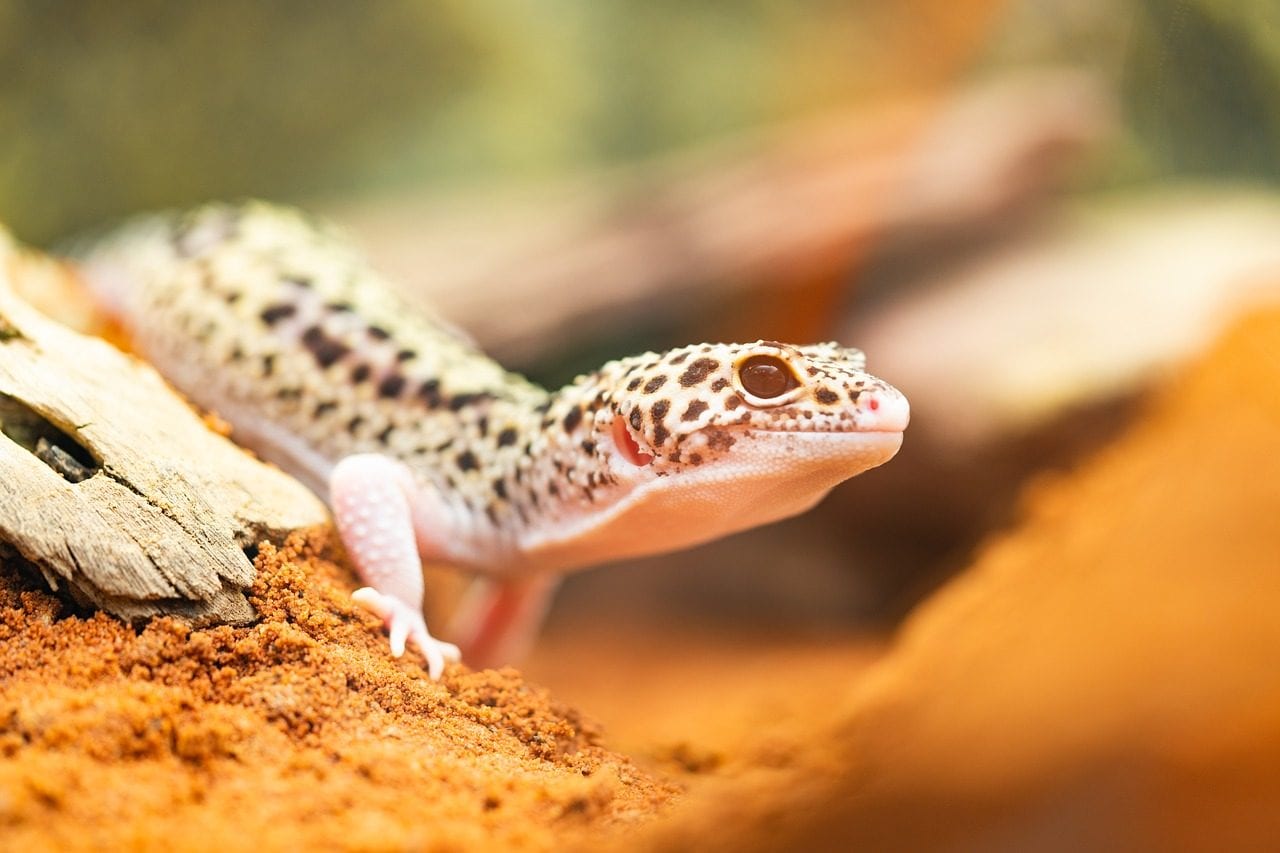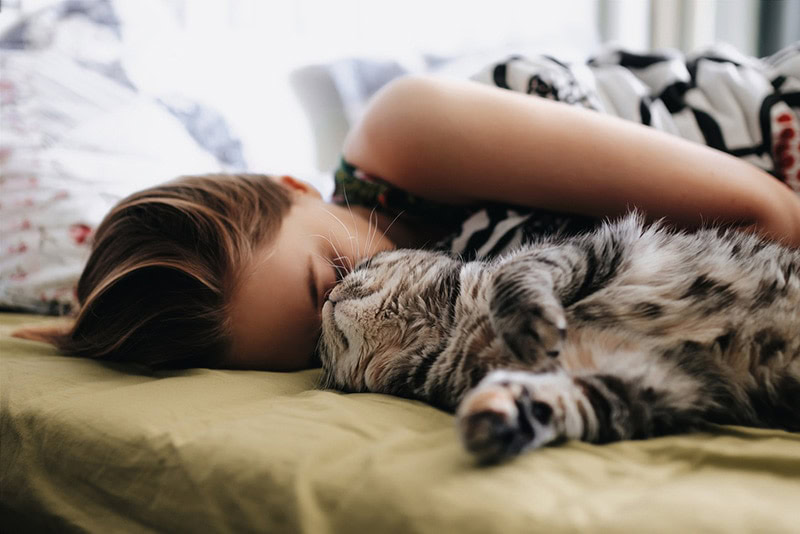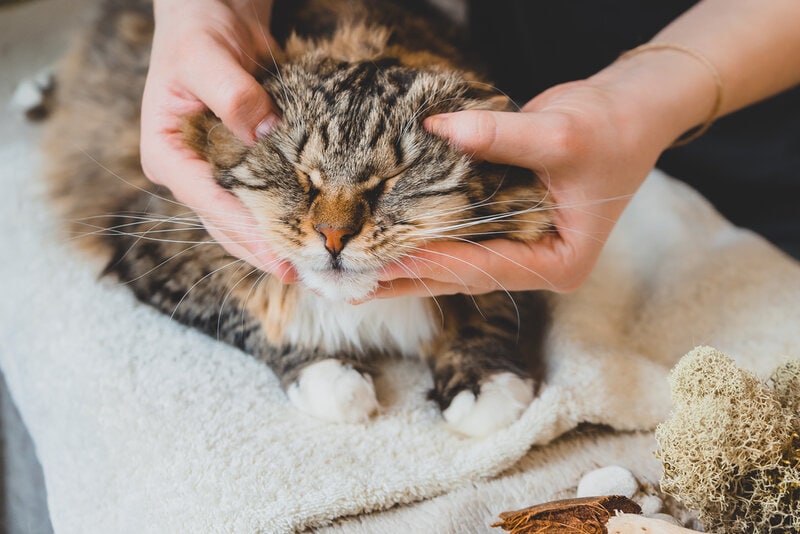VET APPROVED

The information is current and up-to-date in accordance with the latest veterinarian research.
Learn more »Click to Skip Ahead
As more people want to keep exotic pets, leopard geckos are increasingly becoming part of the pet-owning conversation. As you can imagine, though, a reptile’s needs are vastly different from those of a standard pet like a dog or cat. Furthermore, their temperaments and behavior are also extremely different. Therefore, it is essential to acquaint yourself with the behaviors of a leopard gecko before adopting one, as that will allow you to know whether this animal would be a good fit for your lifestyle.
Most lizard species display nocturnal behavior, meaning they are active at night and sleep during the day. This is something that turns off many people because they would rather have a pet with a sleeping cycle that matches their own. One of the most challenging aspects of owning a nocturnal animal is that you may also have to be active at night to provide them with food and care and to bond with them.
So, are leopard geckos nocturnal? Leopard geckos are indeed nocturnal, although as pets, they may wake up at around dusk, leading many people to inaccurately believe that they are crepuscular. Read on to learn more!

The Difference Between Nocturnal and Crepuscular
A nocturnal animal is active at night and sleeps during the day. Good examples of nocturnal critters include some bats, honey badgers, most owls, and bushbabies. Leopard geckos are also classified as nocturnal 1.
Conversely, a crepuscular animal is one that is active primarily during the twilight period. Such animals can be further classified as follows:
- Matutinal: Active only after dawn
- Vespertine: Active only before dusk
- Both matutinal and vespertine: Active before dusk and after dawn
Interestingly, the fact that very few animals classified as crepuscular strictly follow their proposed biological clock schedule has led to the postulation that they may in fact be displaying cathemerality. This refers to an activity pattern of irregular intervals during the day or night in which food is acquired, socializing with other animals occurs, and any other activities necessary for livelihood are undertaken. The animals that follow this sort of activity pattern are sometimes referred to as cathemeral. For example, lions are often considered to be cathemeral.
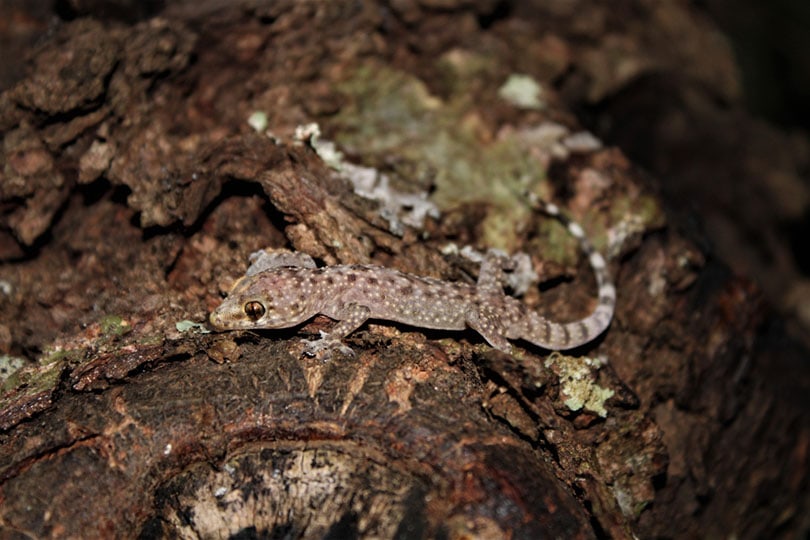
Why Are Leopard Geckos Nocturnal?
In the wild, leopard geckos live in deserts. Being exceptionally hot during the day means that most of their prey wouldn’t be available for them to catch during this period. Instead, leopard geckos retreat to their burrows or dens during the day and only come out at dusk. At this time, they tend to climb onto rocks, logs, or other surfaces that were exposed to the sun’s heat the entire time they were away. They then absorb the heat from these surfaces and proceed to hunt during the night, under the cover of darkness.
The leopard gecko’s tail, which is extremely heavy (around a quarter of their weight) and composed mostly of fat, also helps them deal with life in the desert. Some nights, the temperature may get too low for them to continue a hunt. They would then retreat to their burrows or dens and rely on the fat reserves in their tail to sustain themselves.
Furthermore, unlike most lizards, leopard geckos do not require sunlight to synthesize their vitamin D3. Their gut microbiome can produce this vitamin for them. It’s been thought by some (but not proven) that part of the reason they live longer in the wild (than as pets)2 is because in the wild they are able to acquire prey which helps keep their microbiome healthier throughout their life.
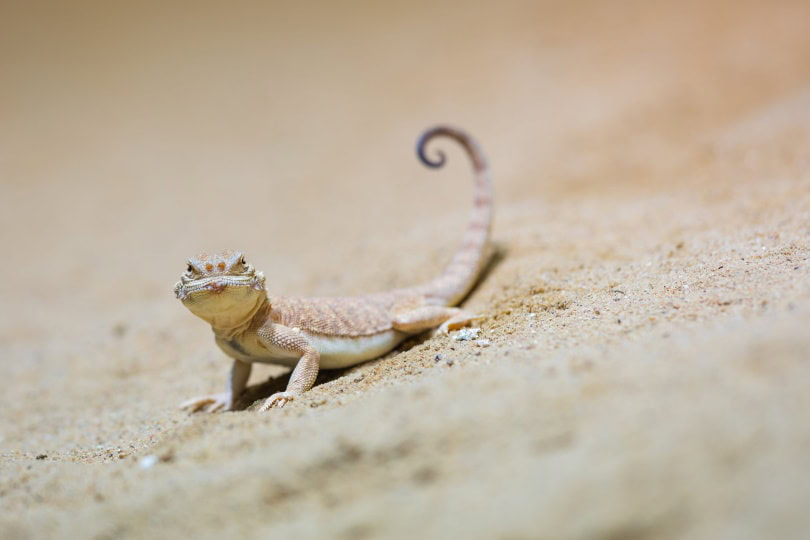

Final Thoughts
Leopard geckos are not crepuscular. Instead, they are classified as nocturnal. It seems that this activity pattern offers them the best chance of survival and success in the wild as a species. Being not domesticated, this intrinsic factor is also seen in pet leopard geckos.
Related Reads:
- How to Tell If Your Leopard Gecko Is Dying: Signs to Look For
- Leopard Gecko Shedding 101: How Often & For How Long Do They Shed?
- Why Is Your Leopard Gecko Not Eating? Reasons With Solutions
Featured Image Credit: Pixabay
